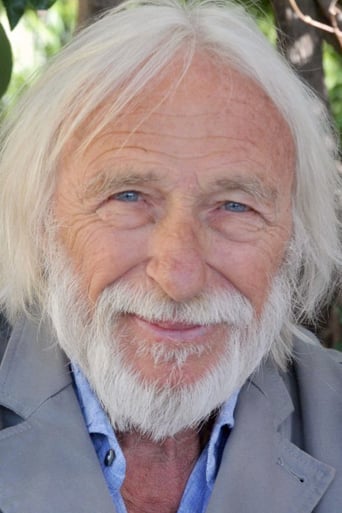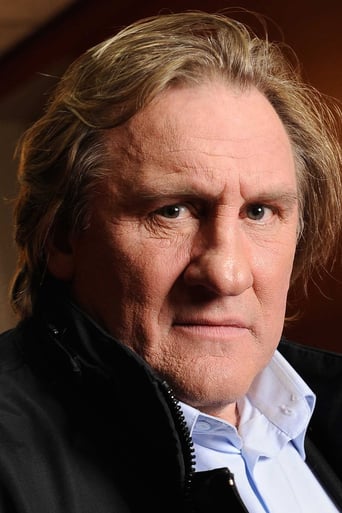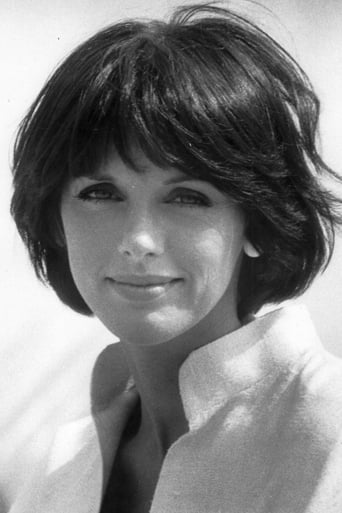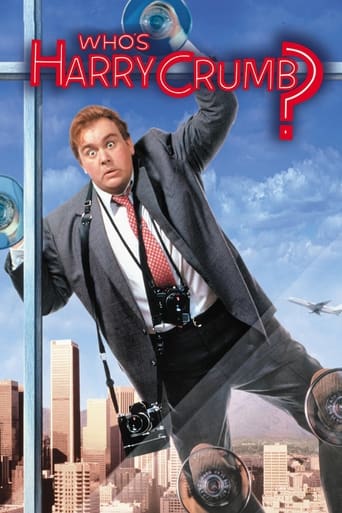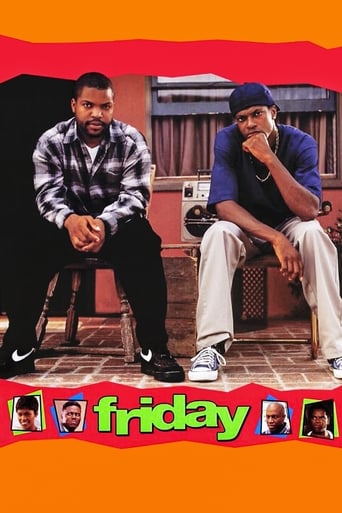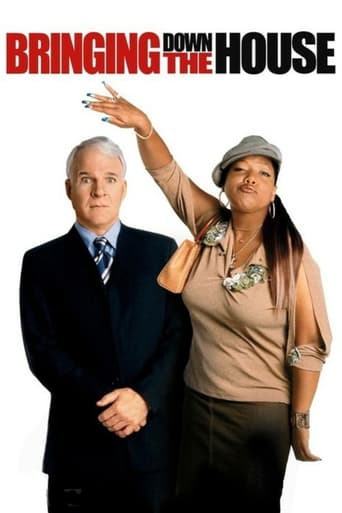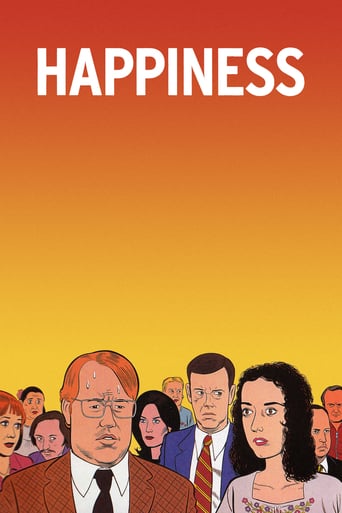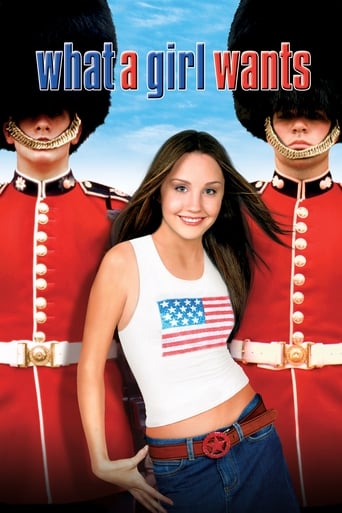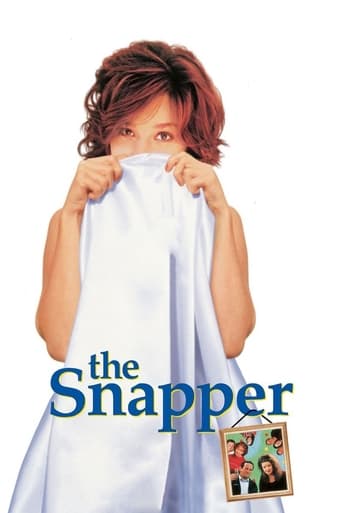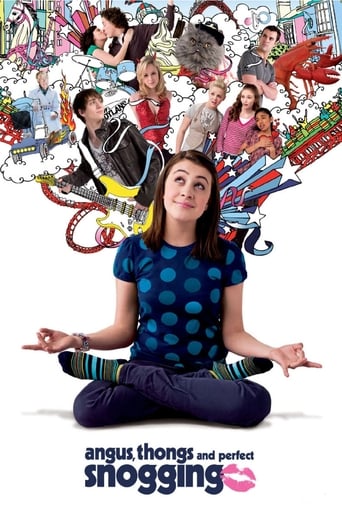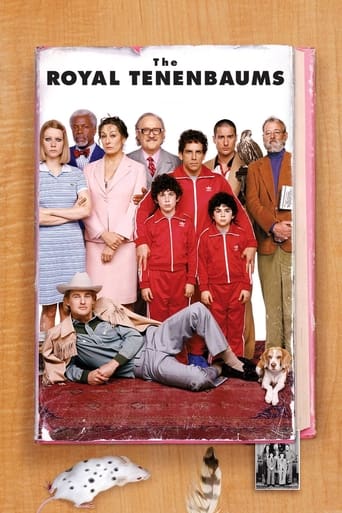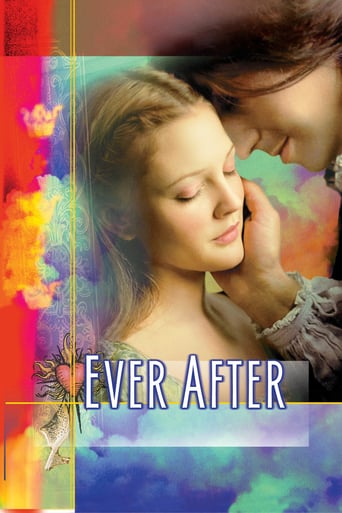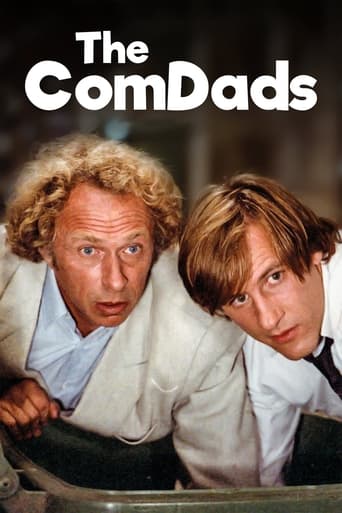
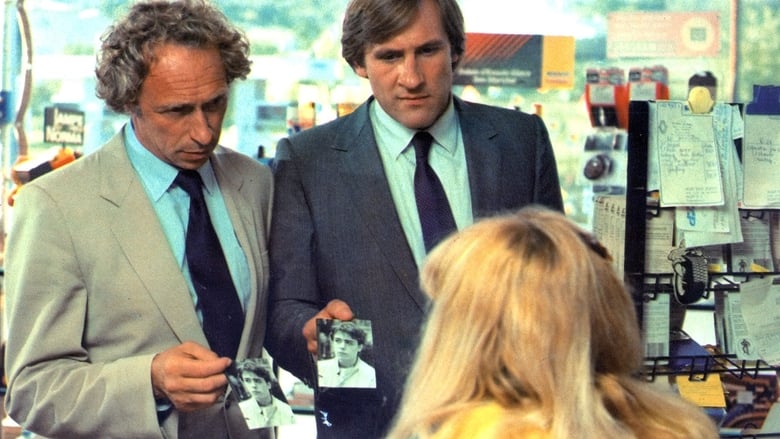
The ComDads (1983)
Unable to find her runaway son, a woman deceives two of her ex-lovers from her youth, a mild-mannered teacher and a tough journalist, that each is the real father in order to obtain their help.
Watch Trailer
Cast
Similar titles
Reviews
A different way of telling a story
If the ambition is to provide two hours of instantly forgettable, popcorn-munching escapism, it succeeds.
It's a movie as timely as it is provocative and amazingly, for much of its running time, it is weirdly funny.
This film is so real. It treats its characters with so much care and sensitivity.
Well, this is the middle movie of this comedy trilogy assembling Veber, Gérard & Pierre and this is one for which i don't feel very connected : sure there is a funny moments with the 3 dads story lines but at it's the last one i watched, it's like i saw the same movie 3 times : indeed, it's always the same plot : find a missing child, 2 ways of investigation : punchy with Gérard and goofy with Pierre Here we don't have the exoticism of Mexico but French Riviera : however as in the future Fugitifs in Bordeaux, this is not the bling-bling Nice (except Negresco hotel) but rather its slums So it's a movie that smells good the great 80s in France but not as good as the 2 others...
"Les Compères" marks the second partnership between Gérard Depardieu and Pierre Richard in a Francis Veber film and while less funny than "The Goat" and less emotional than "The Fugitives", I have a soft spot for this film and consider it my favorite of the trilogy.Maybe it's because it was my first Veber-Richard-Depardieu film, maybe it's this beautiful theme from the master Vladimir Cosma, a little tune that invites us to hug life and trust our spirit. Maybe because it features two actors at the top of their game: Depardieu is tough but some subtle moments betray a sensitive heart, while Richard is as clumsy and dreamy as ever, but not without some moral strength. I guess it's because the movie is all these things and even more, it told me something I could relate to, as a son, as a guy who wants his future son to be an alter-ego who wouldn't commit the same mistakes. The film, behind its comical undertone, is an endearing fable of two men embracing fatherhood like an exciting thrill that enriches one man's life.Pride and responsibility, love and authority Veber finds the perfect dialog and the perfect actions to illustrate the many facets of fatherhood. After "The Toy", and "The Goat" which proved to be commercial successes, Veber's writing and directing talent shows again in "The Compères" starting with the premise. The film opens with a young teen-ager hitch-hiking toward the South of France with his girlfriend. They're young, good-looking, we'd take it dramatically if the music wasn't playing, conveying a false sense of free-spiritedness. As much as I love the music, and as I find the opening scene relevant, the combination of both creates an awkward feel, except if it's used to express a sensation of melancholy and uneasiness through the kid's act.The first scene reveals his identity, his name is Tristan, he's 16 and ran away from home. His mother (Anny Duperey) is very concerned and tries to collect information from police and from the girlfriend's father, without much result, the father, remarkably played by Michel Aumont (another regular from Veber films) is one of these decent guys who lacks the 'wild side' that can help sometimes, he's not a tough guy like Depardieu or a tortured soul like Richard, and seems to have the bad role of the 'average schmuck' in the beginning. The story begins when the mother has a strange idea; she meets Jean Lucas, Depardieu, one of her youth's love and tell him that Tristan is his son, so he would feel responsible enough to find him. Showing reluctance first, he finally accepts to help when given the opportunity of an investigation in Nice that would finally prove a politician's connection with the mob. He's already persona non grata in the town after an incendiary article against the local Mafioso.Meanwhile, the mother had the same idea with Pierre Richard, François Pignon, a depressive guy at the verge of committing suicide. Having found at least a meaning to his life, Pignon naturally accepts to help. The film's first comedic moments are driven by the way Lucas and Richard try to find similarities between them and Tristan, when given the photo, they can't hide their disappointment because he obviously doesn't look like them, but when their paths cross in Nice, you can feel their pride when they talk about Tristan. The qui pro quo is both poignant and funny; it's sad because we know they're not the fathers, and yet we accept the eventuality and funny because each one reads in Tristan's personality: where Lucas sees strength and rebellion, Pignon sees a dreamer, an idealistic soul. The two men are both different in personalities, but this time, they have something in common, and that's why I prefer this Depardieu and Richard duo..The cat-and-mouse between Tristan and his two fathers, spiced up by the involvement of the mob, lead to a series of comical situations from Pignon's outburst of laughs when he was told to cry, to Lucas teaching Pignon how to hit with a head. Finally, we discover Tristan, a kid who probably left his house, because he was tired of his father's lack of personality (like James Dean in "Rebel Without a Cause") and ironically, he had such a hard time in the film that he needed not just one father, but two. When he cried over his break-up, Lucas told him to stop because he's a man, while Pignon let him go on, it doesn't matter who's right or wrong. A father doesn't necessarily give the right advice, but he gives the one he feels the righter.And while the two protagonists discover that being a father is a full-time job, Tristan realizes that if two men want to be his dad, than the real one is to be valued. It was a beautiful touch to have this final discussion between Tristan and his father, instead of the mother. All is well that ends well, and the film ends in an extraordinary poignancy when Tristan told each of Lucas and Pignon that they are the real father, Depardieu's reaction was extraordinarily. Why did he do this since they'll end up knowing the truth? I guess it's because he understood their happiness over the idea of being fathers, and if he could let them share this happiness even for a brief time. It's worth the coming disappointment.There's a bittersweet feeling in the ending but it's still the perfect note of optimism to conclude this beautiful story with the two smiling men and the kid holding them and asking them when Father's Day is, and then the beautiful music from Vladimir Cosma starts again. Indeed, "Les Compères" is one of these films to watch during Father's Day.
*Les SPOILERS* Christine, after her son Tristan has ran away from Paris, asks for the help of two old ex-boyfriends, neurotic ex-teacher Jacques and tough journalist Jean-Lucas, to find him, and she tells to both of them that he is their son, while her husband, the man that unwittingly caused Tristan's flight.The chase begins, or better, the chases, because Jean-Lucas is preparing an article about a Casino owner's affiliations with the Mafia, and said Casino owner understandably doesn't want the article to be published...This is the original version of 'Father's Day', and is arguably better, especially with French Comedy Genius Francis Veber at the helm and Pierre Richard vs Gérard Depardieu (one of the best living French actors) in full play, this movie is a real treat to watch.Favourite scene; when Tristan is fighting against his ex-girlfriend's new boyfriend and in the meanwhile Jacques and Jean-Lucas are having a fight of their own, and the crowd turns from the two boys fighting to the two men fighting! Les Compères: 7,5/10
This films rocks and rolls, all with a special French flavor, a soupcon of danger, many droll scenes, yet never quite too wild to be entirely unbelievable. Depardieu cannot be compared with any other actor in the world; his talent and the vast number and variety of roles he's played are astounding. He's been funny in many films; he's more famous for his most dramatic, tragic roles, naturally -- but, for me, this is his most riotous role -- and he's the straight man, essentially. A hard thing to pull off well. I liked "Les Comperes" better than "La Chevre" -- the other, earlier pairing of Richard and Depardieu. Both films are quite funny; both actors are excellent here. This film touched a nerve with me -- as a stepfather. Later, of course, the movie got remade in America with Robin Williams and Billy Crystal -- but the magic wasn't there. The real American partner to the original "Les Comperes" is the Danny Glover and Martin Short film "Pure Luck." It's my own personal theory that "Pure Luck" is a ripoff of "Les Comperes." I mean no ill-will here. The "ripoff" is a fair one; ideas cannot be copyrighted, nor should they be -- good writers "borrow"; great ones steal. Well, "Pure Luck" has the same central chemistry; Glover and Short play off each other in an identical fashion to Richard and Depardieu. Instead of looking for a run-off young teenage boy, we have a daughter missing and a rich, corporate dad concerned -- versus a sexy, wily, strong-willed French mother in "Les Comperes." The daughter in "Pure Luck" is chronologically older, in her twenties, but her mind is, well, let's say calling her "childlike" would be overly charitable. The daughter adds to the magic in "Pure Luck" -- in "Les Comperes" the missing son is mainly that -- missing. But that's exactly as it should be, the two dads are what's it's all about. Both are excellent films. If you know some French or a lot, or if you don't mind subtitles, or if the dubbed version is very well done -- "Les Comperes" will reward you tremendously for your time. It's the better film, the more enduring -- because it remains closer to reality throughout, despite much typically Gallic, but still recognizably universal male zaniness. And it has warmth, even romance -- plus the missing boy keeps a real concern at the center of the film. It's fair to call "Pure Luck" slapstick -- but slapstick at its very best. "Les Comperes" may occasionally approach slapstick, but deserves a higher regard. Its insights are much deeper and its comic-view is more subtle (but only so in comparison to "Pure Luck"). I mean, you can't miss the humor here. See both; let me know what you think. Aren't they uncannily similar? Women will probably enjoy "Les Comperes" more, too, because of the strong role of the French mother, her self-confidence, her power over all the men -- and all so gracefully, elegantly done.
